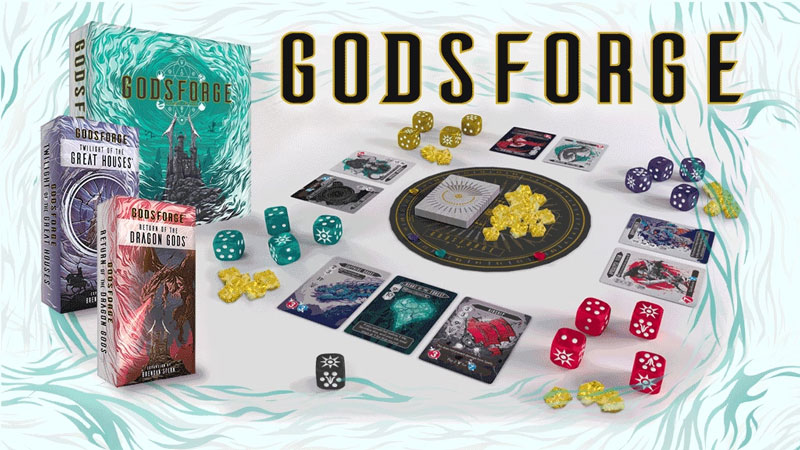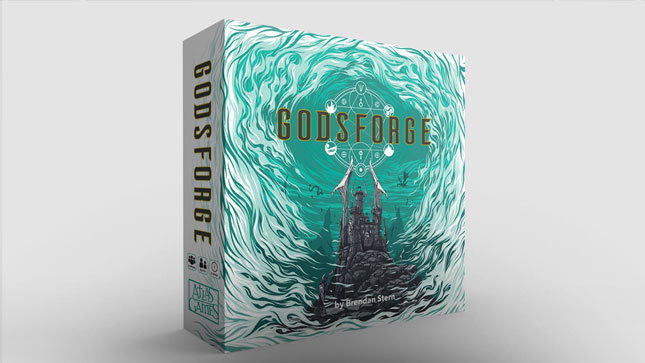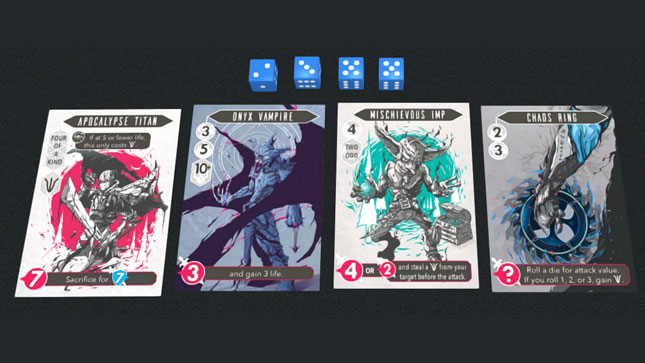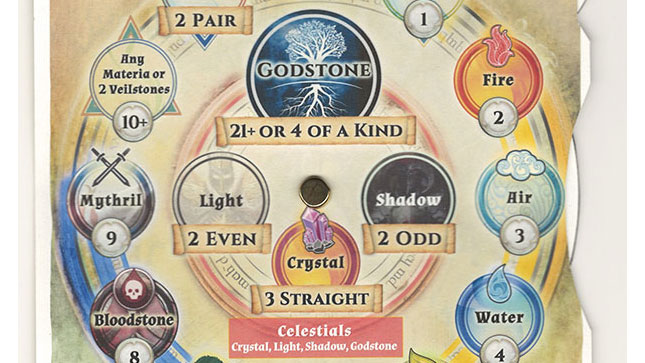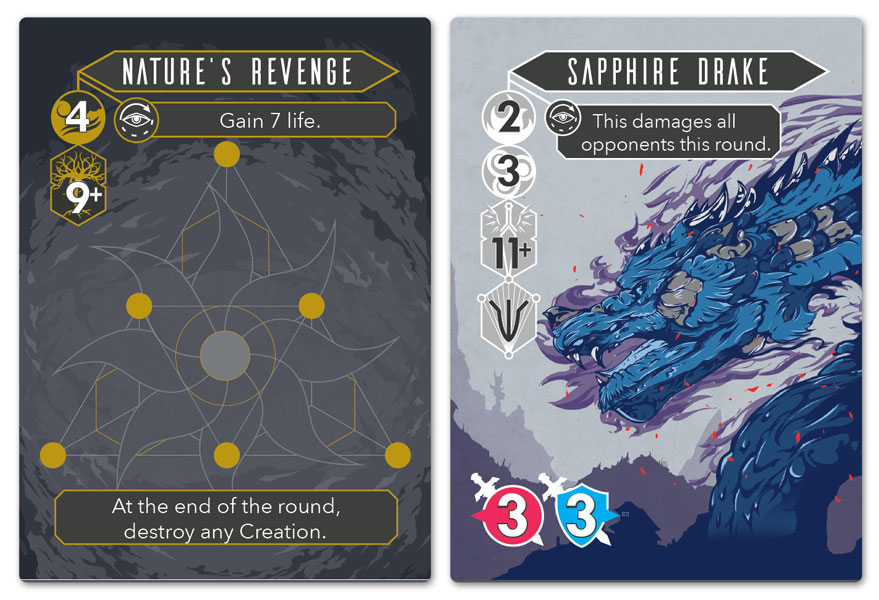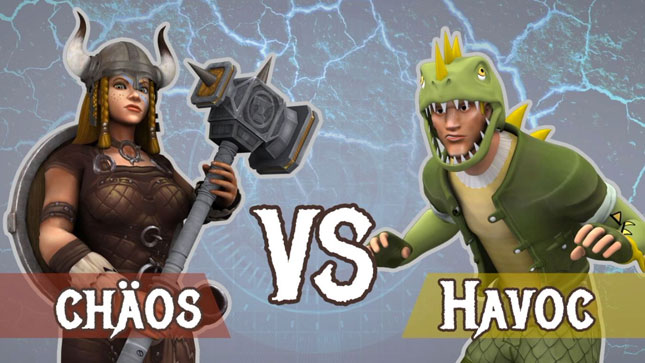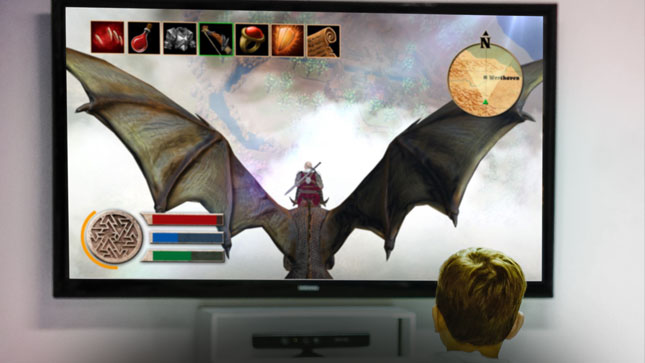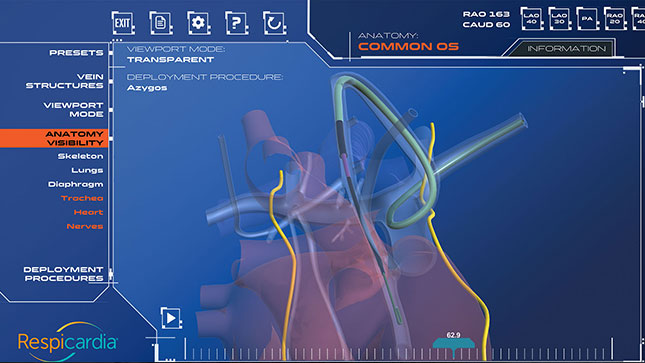Godsforge is a light, multiplayer, epic, fantasy, battle game you can play in under 30 minutes, designed by Brendan Stern and published by Atlas Games. It features a mini puzzle game of rolling dice, playing your cards, and tactically adjusting your play style to defeat your opponents. Simultaneous play allows for quick, dynamic games.
Two expansions have been released in 2023, Twilight of the Great Houses and Return of the Dragon Gods. They had a successful Kickstarter campaign and are a big hit with those familiar with the base game.
If you have questions about the rules or otherwise we often check the forums at Board Game Geek if you'd like to post there. Please give us a rating there if you enjoy this game.
“Effortlessly blending high-fantasy lore with Yahtzee-inspired dice mechanics, Godsforge hits a magnificent stride between luck and skill oriented gameplay styles… every facet of Godsforge seeks to keep all players at the table engaged at all times.”
- DualSHOCKERS.com, Our Four Favorite Games from PAX Unplugged 2018
Articles
Players: 2–4
Time: 20–40 Minutes
Age: 14+ (but unofficially 10+)
Designer: Brendan Stern
Artist: Diego L. Rodriguez
Publisher: Atlas Games (product page)
Crafting the Mechanics of Godsforge
By Brendan Stern, 4-15-2019, updated on 8-13-2023
Godsforge has similarities to other fantasy battle games done before, but it is the combination of many mechanics that make this game unique and a great multiplayer experience.
Simultaneous Play
One the the biggest complaints I hear from people playing board games is waiting for their turn, so my first priority was to make play simultaneous. It really makes the pace of the game quick and one of my favorite parts of Godsforge is hearing all the dice crash against the table during the Forge Roll. The game has a rock-paper-scissors dynamic so you have to guess what your opponents’ next play will be while you are choosing yours. As an advanced play, you can look at what your opponents have rolled and can better guess what they might be playing, but it helps to know all of the cards.
Mitigating Luck and Input Randomness
In Godsforge I wanted to give some control to the players so I had them roll dice and make their decisions based on the roll (input randomness) instead of making decisions and then leaving it up to the dice. I also wanted to have a high chance of modifying your rolls. Thus came the creation of the Veilstone, inspired by Kingsburg, the one resource in the game that allows you to add or subtract one to any of your dice rolls. The more Veilstones you have, the easier it is to play your cards or gain more powerful effects.
If you’ve ever played with me on board game night you will often hear me say, “This game needs a Veilstone.” Catan? Needs a Veilstone. King of Tokyo? Needs a Veilstone, etc. My friends just roll their eyes at me.
Even without Veilstones the math of Godsforge is designed so you will almost always have a card to play unless you have several cards in your hand with a high cost or that require extra Veilstones. It is also worth mentioning that if you have several cards that share cost, it will hurt your chances of playing a card.
Player Elimination, Minus the Bad Stuff
Player elimination is not real fun if one player is out of the game and everyone else goes on to play for hours, so we created some mechanics to make player elimination work.
The first mechanic is to have everyone attack the player to their left. This helps to take down each player's health at a similar pace, so players don't get eliminated too early, reducing time sitting out. This mechanic was less about Kingmaking (more below) and more about keeping everyone in the game.
The second mechanic is after the first player is eliminated, all players take an additional 7 damage each round to speed up the end game. It may make you think twice about taking out a player.
Third, we kept the game to 20-40 minutes, so any down time is quite short, especially because there is no waiting for your turn.
Limiting Kingmaking
Kingmaking in games is often described as a game situation where a player may have no chance of winning the game, but then they ultimately decide which player will win by hurting the other players or boosting up the player of their choice. We wanted to lower the possibilities of doing that in Godsforge.
I talked already a bit on how players only attack the player on their left. That helps a bit to limiting Kingmaking. However, there are still cards that destroy Creations controlled by any player, and some effects that target all players. We wanted to include these effects so you can still target a player that is getting considerably far ahead.
To limit Kingmaking, destroy effects often happen at the end of the round, so if you are eliminated from the game before that, the effect does not happen. This helps to avoid leaving the game and taking someone with you.
Players Draw from the Same Deck
This mechanic makes setup fast and also puts players on an even playing field at the start of the game. It is different from games where you construct your deck and often have a large advantage or disadvantage before the game starts. That said, I do like games where you can build a deck, so that might be possible in expansions.
The Deck is Smaller, with a Balance of Specific Cards
With Godsforge we were strict with how the deck was built, including avoiding cards with total board resets, to ensure the game comes to a close in a reasonable time. We removed any effects where you could search through the deck for specific cards as it slows down the game and hurts the simultaneous feel of play. We also made the deck only 52 cards to ensure the right concentration of the various card types:
- Creations: Attack, Defense, Veilstone Building
- Spells: Creation Destroying, Big Damage, Defense, Board Manipulation
With a smaller deck you will have a better chance to get the right mix of each of these cards, where if you had a deck twice the size you may get a clump of the same types of cards.
More importantly, the game is made of cards that are better for the early, mid, or late game. Typically in three or four player games players will go through the deck once and reshuffle it. Because players will often discard late-game cards early on, the deck will get concentrated with good late game cards at the end of the game. This helps to ensure a more explosive and dramatic ending to the game.
Keeping the card count low reduces the amount of information for new players lower so you can more easily become familiar with all the cards.
All that said, the expansions are coming out, and wow, it is so fun to play with over 150 cards in the Fate deck. You may not get the concentration of end game cards like you do in the base game, but you get so much variety and wild board game states.
Reduced Text
Not exactly a mechanic, but we knew we wanted to only include cards that had limited text. If it had too many words we looked to shorten it or we cut the card.
Fast Combat, Fast Setup and Tear Down
Finally, I wanted to mention speed of setup and play. I made combat simple so it would go quickly when you have lots of players interacting. The biggest choices are deciding what Veilstones you want to spend to Empower your Creations or sacrificing Creations for bigger effects. One reviewer complained the combat was not dynamic enough, but that was done on purpose for speed of play.
Also, this game sets up and tears down almost instantly, making it ideal for a board game club or a game you want to play quick on game night.
What do you think of these mechanics? What issues do you see in the mechanics of the games you play?
